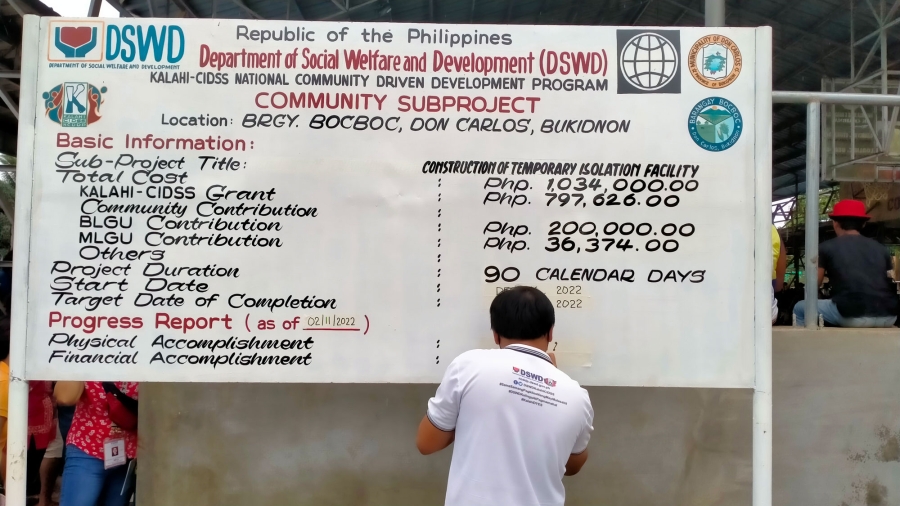HB 00443 filed by Mountain Province Representative Maximo Dalog Jr.; HB 00500 filed by Benguet Representative Eric Yap, Davao City Representative Paolo Duterte, and ACT-CIS Partylist Representatives Edvic Yap, Jocelyn Tulfo, and Jeffrey Soriano; and HB 01910 filed by Batangas Representative Lianda Bolilia are all measures to institutionalize CDD and its principles as the national strategy for inclusive growth and social protection.
Through the CDD Bill, KALAHI-CIDSS aims to institutionalize and operationalize CDD’s key principles of participation, transparency, and accountability - all of which leads to community empowerment and fosters inclusive and sustainable development.
The CDD Bill seeks to mandate the adoption of the CDD approach for all community-based programs, projects, and activities of national government agencies (NGAs) and local government units (LGUs).
Through the CDD approach, communities are empowered to identify and propose solutions to their immediate and most pressing needs. They are further empowered to participate in all implementation phases of their identified solutions and interventions. With this approach, community members are able to meaningfully participate in all stages of the development process.
The CDD Bill hopes to give the people more power to chart their own paths, in line with the true intent and spirit of devolution. The CDD Bill will provide an enabling policy to achieve genuine community empowerment by enhancing capacities for community participation especially in poor, vulnerable, disadvantaged, and marginalized communities.
Through the CDD Bill, the government can better facilitate and ensure inclusive growth and social protection. Further, the government can build on and perpetuate the gains of CDD as implemented by KALAHI-CIDSS.





